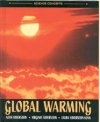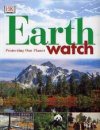A Change in Climate Additional Information
Additional information for kids about global warming is available at www.epa.gov/globalwarming/kids/ (U.S. Environmental Protection Agency), www.pewclimate.org/global-warming-basics/kidspage.cfm (Pew Center on Global Climate Change), and www.koshland-science-museum.org/exhibitgcc/index.jsp (Marian Koshland Science Museum of the National Academy of Sciences).
You can learn more about the American pika at www.nature.ca/notebooks/english/pika.htm (Canadian Museum of Nature) and animaldiversity.ummz.umich.edu/site/accounts/information/Ochotona_princeps.html
(University of Michigan Museum of Zoology).
The Pika Project Web page can be found at ice.ucdavis.edu/pika/pikapage.html (University of California, Davis).
Sohn, Emily. 2004. A dire shortage of water. Science News for Kids (Aug. 25). Available at http://www.sciencenewsforkids.org/articles/20040825/Feature1.asp.
______. 2003. Will climate change depose monarchs? Science News for Kids (Nov. 19).
Available at http://www.sciencenewsforkids.org/articles/20031119/Note3.asp.
______. 2003. Slower growth, greater warmth. Science News for Kids (April 30). Available at http://www.sciencenewsforkids.org/articles/20030430/Note2.asp.
Books recommended by SearchIt!Science:
 |
Global Warming— Alvin Silverstein, Laura Silverstein Nunn, Virginia Silverstein
Published by Twenty-First Century Books/Millbrook Press, 2003.
Ever since the Industrial Revolution (around the year 1750), the planet has been getting warmer. The increase in burning fuels causes a large amount of carbon dioxide to enter the atmosphere. All of this gas traps the heat, and consequently, we get hotter. In this book, find out about the effects of global warming and what we can do to slow the process. Find out about the different periods of weather through history and see how today’s temperatures compare. Learn how the heat is affecting the ice caps and the oceans. Most importantly, discover how you can help prevent these negative changes from happening to Earth. |
 |
Global Warming— Chris Oxlade
Published by Bridgestone Books/Capstone Press, 2003.
While “you might think that a slightly warmer atmosphere would not be a problem,” the main effect of global warming won’t be the warming itself. Rather, the world’s weather patterns will change, with devastating effects. Dive into the complex issue of climate change in this book, which features colorful double-page spreads that focus on issues such as greenhouse gases, how scientists track global warming, and how climatologists model the future. Both the causes and effects of global warming are discussed, as well as ways to deal with the problem. Related science activities and ways that you can help slow global warming are suggested in sidebars. |
 |
Earth Watch— David Burnie
Published by Dorling Kindersley, 2001.
“What’s going to happen to Planet Earth?” Our planet is faced with some serious problems as we enter the 21st century, and his book provides an overview of many of them. Touching on issues such as air and water pollution, climate change, water conservation, soil erosion, deforestation, wildfires, clean energy, overpopulation, and wasteful consumption, this book provides recommendations on what you can do to help our planet. “A day in the life of. . .” sections profile people who work as garbologists, glaciologists, and organic farmers, and plenty of full-color photos illustrate the information-packed text. |
Power Words
global warming A rise in the average temperature of the Earth’s atmosphere. Many scientists believe that global warming is caused by the release of greenhouse gases. Global warming is believed to be capable of causing major changes in weather patterns.
greenhouse effect The trapping of the Sun’s heat in the Earth’s atmosphere. The greenhouse effect is caused by the presence of greenhouse gases in the atmosphere. Many scientists believe it is the main cause of global warming.
greenhouse gas A gas in the atmosphere that makes the greenhouse effect worse. Carbon dioxide, water vapor, and methane are greenhouse gases.
Copyright © 2002, 2003 Houghton-Mifflin Company. All rights reserved. Used with permission.
